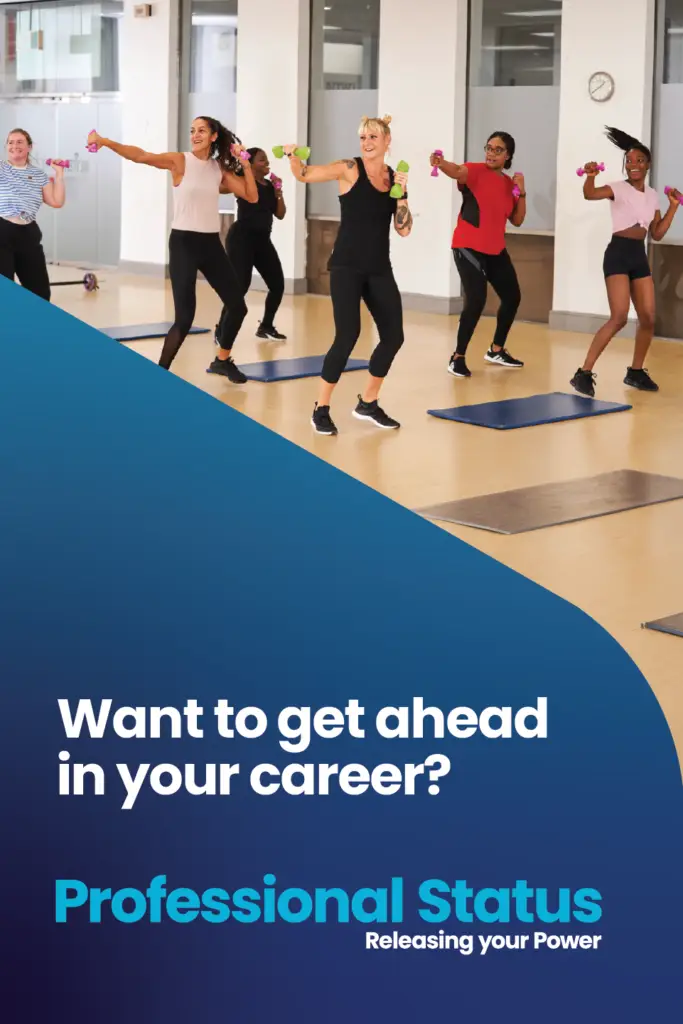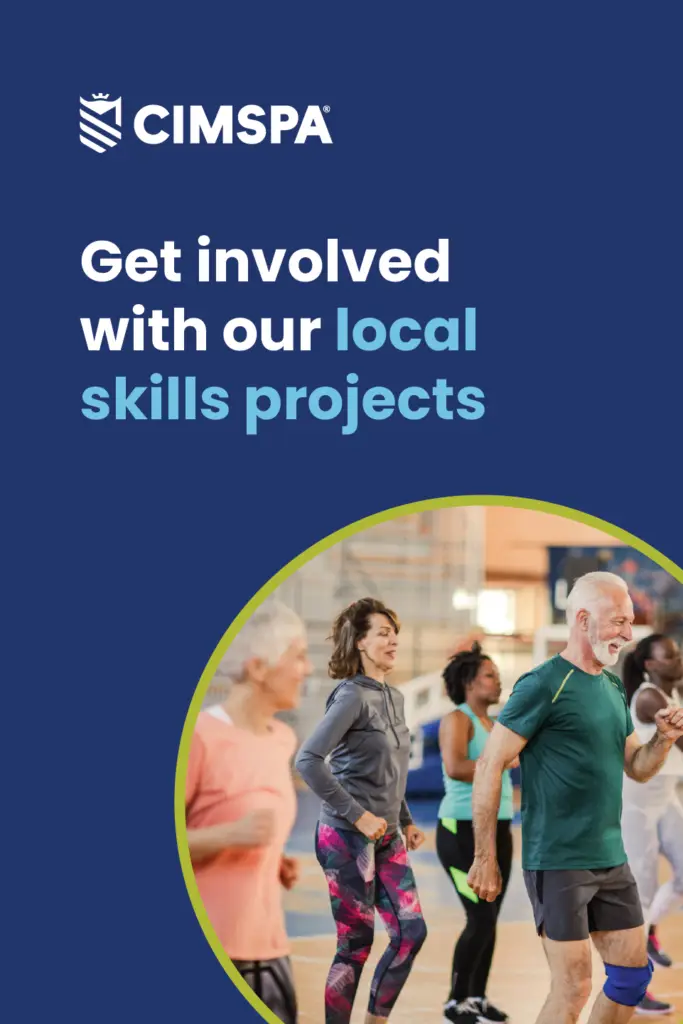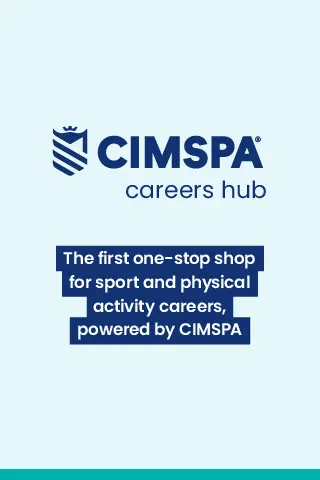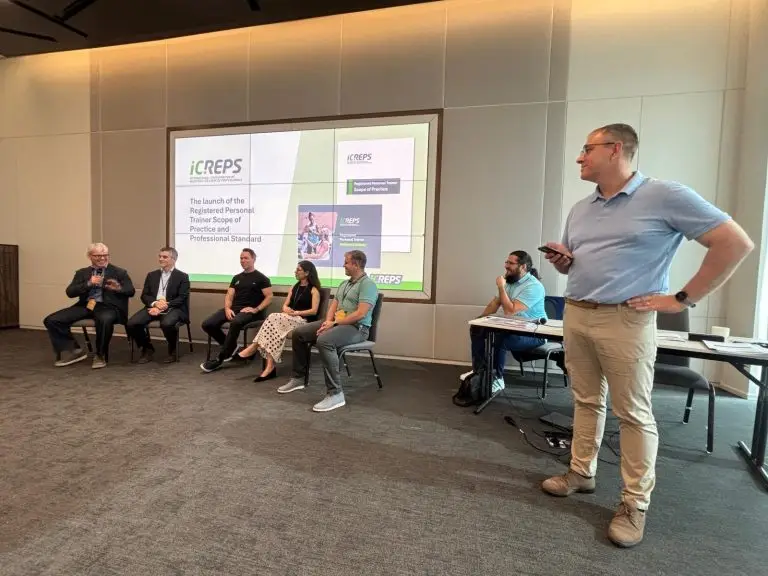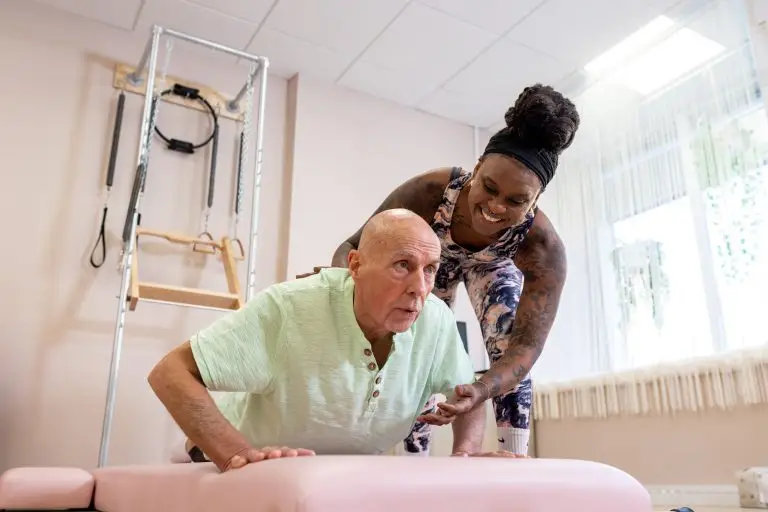Taking to management like a duck to water
How Ali Beckman’s passion took her from keen swimmer to director and president
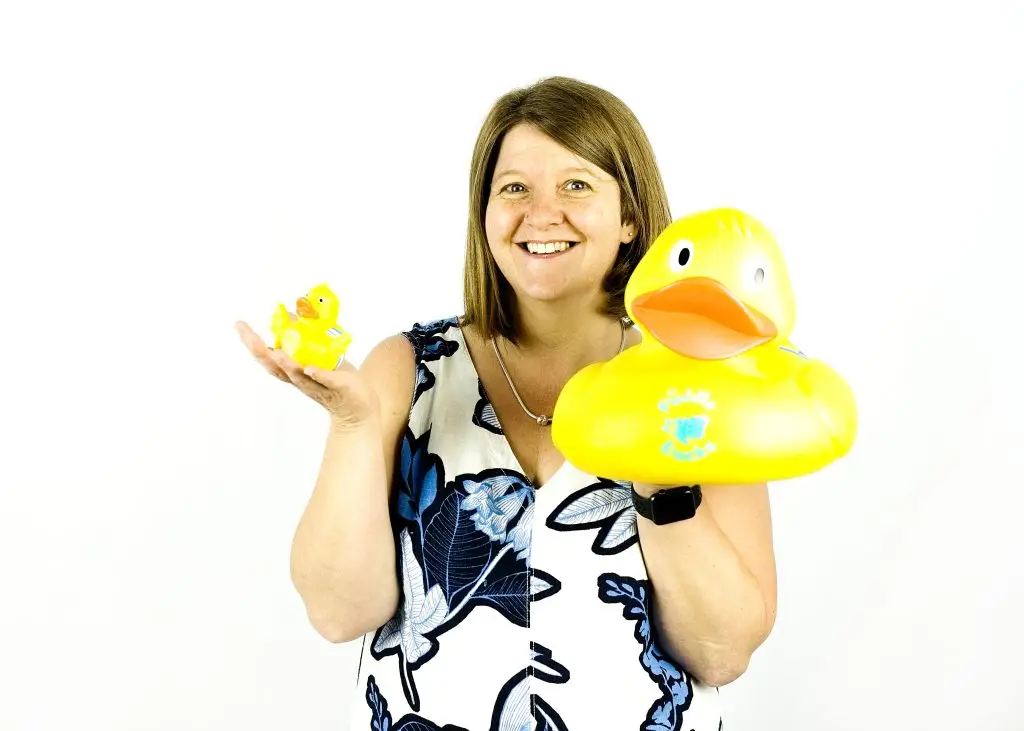
To put a spotlight on one of the many dedicated leaders and managers working in sport and physical activity, we spoke to Puddle Ducks Director and Head of Aquatics, Ali Beckman.
Swimming is in Ali’s blood, having been poolside for most of her childhood and adult life. We sat down for a chat with her to talk about her career, her ambitions for the wet side of the sector and her thoughts on how to tackle the challenges that the sector currently faces.
Firstly, we’d love to know a little bit more about you and how you got into the world of swimming.
“So, I was born and raised in in Salford, and I have come from a very big swimming family. My mum was a competitive swimmer, and my grandfather was a swimmer. My mum has been a head coach of a swimming club since 1985, so we were destined, me and my two sisters, to be swimmers. Basically, our lives revolved around swimming. I’ve been brought up in the leisure industry environment from a very young age.
“I was a competitive swimmer. I used to swim for Swinton Swimming Club, where my mum is still head coach, and also what was back then Salford Triple S, which is now City of Salford. Then I moved to Manchester Dean Smith swimming squad. When I was 15, I had an injury. I had a breaststroker’s knee. So, my mum said, ’well, if you’re not going to swim, you can teach’.
“So, I was helping out on poolside. I did have a gap for a few years where I thought no, I’ve missed out so much of my teen years where my friends have been going to parties and I want to be involved in that, but eventually you’re drawn back to it.”
So, how did you get back into swimming and leisure after that break?
“I started working at a university in admin roles and then moved into project management. I started doing some coaching there as well.
“When I was 28, I moved to Cheshire, to Northwich, with my husband, and I had my son in 2004. I thought obviously he’s got to learn to swim because that’s what we all do. That’s in our blood.
And I found Puddle Ducks, which was the local baby swimming company that had been going since 2002.
“So, at 8 weeks old, I took him along. I was kind of at that point in my career where I thought I don’t want to go back to working at the university. I thought, swimming is my life. It’s always been my life. Why can’t I do that as a job? So, I approached the owners and I was really, really upfront. I basically said you either let me join your company or I’ll set up as your competitor.
And that’s how it started.
“I joined them in early 2005. The owners at the time were from a very business-orientated background. No swimming whatsoever. So they were fabulous at running the business, but the lessons needed a bit of work. So, I basically went in straight away and within six months was appointed Aquatics Technical Director and took over writing lesson plans and developing the whole programme.
“Then, in 2023, I moved down to Cornwall as I needed to be nearer the sea so I could swim daily.”
Tell me more about Puddle Ducks and the work that they do.
“Baby swimming was predominantly our core business, but we moved into teaching school-aged children 15 years ago and that’s a huge part of our business now. We teach from nought to about 10–12 years. We also teach aqua natal lessons as well. So that broad spectrum of aquatic disciplines.
“Our USP is that we teach the children individually. It may be a set lesson plan, but every single child comes in, at any age, any time. So, if you don’t start from week one, our teachers are trained to recognise where that child is up to and to progress them individually.
How are you set up? Is it a local business or are you nationwide?
We started in mid-Cheshire, in the Northwich area, which is where I lived, and then we franchised about five years later and it was all very organic. We basically had a customer who came to our lessons in Northwich who lived in Chester and really wanted to teach for us, and the franchising idea came from that. Then came Bristol, Dorset and Wakefield. We’ve got 28 franchisees and operate in 50 territories.
Do you have a core team at a head office?
“We’ve got a big head office in Cheshire. There’s myself, who’s director, and then we’ve got Jo, who is the founding director and CEO. We’ve got a non-executive director on our board, and then we have a senior leadership team and four different teams. So we’ve got the aquatics team, we’ve got the marketing and customer experience team, a franchise support team and then a finance team. I head up the aquatics team and it’s us who develop the product – a team of teachers, tutors, assessors and mentors, all experts within our fields.”
Do you have any other roles outside of Puddle Ducks?
“I’m the president of the STA (Swimming Teachers Association). I’ve been a trustee for eight years and I’ve been president for four. I’m also the chair of the Compliance Advisory Board. That’s great because I can work in the industry, I can see what’s going on everywhere else and I can support other swim schools, other operators and other teachers.It’s been really important to me that I don’t sit in a little bubble. I like to know what’s going on elsewhere and try and support them as much as possible.
“I also tutor for the STA as well. Unfortunately, I had to give my teaching up a couple of years ago. That’s purely because I decided to move to Cornwall and we don’t have a franchise there. Not yet, anyway. I really do miss the teaching side because that’s what got me into this role in the first place. But across the Puddle Ducks network, we’ve got about 500 teachers and around 200 poolside assistants as well as our franchisees and customer service teams.”
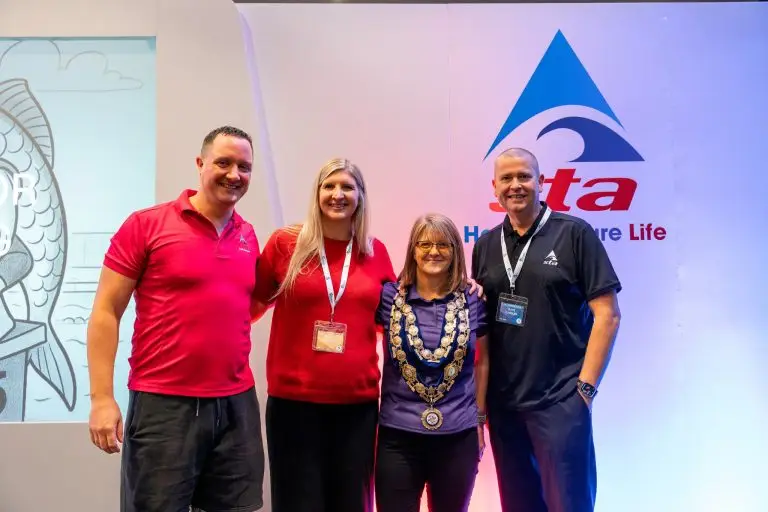
You were recently issued Chartered Senior Manager professional status, too. What does that mean to you personally and professionally?
“One of the things that I have a struggled with personally is that I try to develop everybody else and forget about me. My training and moving into a senior role has been quite organic. I worked up the ladder and everything has come through experience.
“Then, I had a couple of years difficult years personally, at home, with my husband having cancer, then the move to Cornwall, I lost my Dad and I had some health issues myself. I wanted to do something for me.
“It wasn’t necessarily that external recognition that I wanted: it was more to prove to myself that what I’ve been doing for the last 20 years is actually right. It’s a badge of honour for myself more than anything. It’s probably my proudest achievement because I’ve never given myself that time to actually do something for me.”
What are Puddle Ducks’ biggest challenges and what are you preparing for in the next 3–5 years?
“I think the biggest thing within the industry is the lack of pool availability and the lack of decent pools out there. A lot of the pools that were built 40–50 years ago are now crumbling and we’re losing them. Unfortunately, there’s no investment from government and we’re not seeing new pools coming along as the old ones disappear.
“What we’ve got to look towards is if we want a pool, we’ve got to build the pool. We’ve got no choice. Then they need to be made available to swim schools. Learning to swim is on the national curriculum. We’re providing a lifesaving skill, but we’re being charged VAT for providing that service. This means that swim schools are reaching the limit and they can’t put any extra lessons on because it’s taking them over the threshold, so they’re not putting those extra lessons on because they need to keep themselves under that. And it’s kids that are losing out.”
Any are you seeing any trends or issues in terms of skill gaps?
“There’s a lack of teachers. We used to have an influx of applications. That’s gone. Applicants seem to think that it’s just about teaching swimming but it’s not – there’s so many more things that they can do. It’s really important to me to see teachers progress there. There’s so much talent out there, there really is. We can use them for so much more – to mentor, to train, to really build the profile of this industry.
“We’re also seeing a massive change in the way people learn. They don’t want to sit down and read. They want it quick – 30 second videos on how to teach front crawl. So, we’re having to adapt massively to the way we deliver our training and CPD. These are the next generation of swimming teachers that are coming through the industry. We’ve got to learn how to communicate with them and that’s a real eye opener.”
How important is continuous learning to your staff?
“People within the industry know exactly what I am like. I am strict. All our teachers have to do CPD every six months. We provide that CPD, and we also use platforms like CIMSPA, like the STA, to send our teachers to, because want them to get some external training as well.
“There are teachers out there that trained 40 years ago who have done nothing since other than teach. That’s great and I’m not taking that away from them, but it’s always moving on. When I was taught breaststroke 30–40 years ago, there wasn’t the emphasis on warming your body up. That’s why my knee ended up the way it did. There was no understanding of the anatomy and physiology, the science behind the sport. There was no understanding about strength development and nutrition away from the pool. So, there’s always new developments; you never stop learning and I’m doing the same. I’m even doing my finance modules at the moment, but I need it. It’s not always just the leisure industry side of training. I’m 51 now and I’m still going on courses. I don’t want to sit back and stop learning, because you become complacent then.”
What would be the best piece of advice you would give someone stepping into the industry or stepping into a similar management role?
“Diversify. If you’re coming in as a swimming teacher, don’t leave it at that. There’s so much more you can do. You can make a real business out of this. If you’ve got that experience, then take it further and go down the tutoring route. Deliver those courses and expand the industry. If you’ve got that background, moving into management roles is so much easier. It really is.”
And finally, have there been any individuals or experiences that have helped shape your management style or philosophy?
“My mum was a huge influence. She moved into a coaching role and my dad worked away. So, she brought up three children, she took us swimming. She took us to the pool every night, walking us miles to get there. We were only very young. Having no support at home and seeing her do that and seeing her so passionate about swimming and the children that she taught was inspirational. I want the kids to look up me like they look at my mum, even now. She’s 76 and the kids are now bringing their own kids to the to the swimming club. They all still adore her and they look up to her and she’s that teacher that they remember.”
“From a work perspective, Jo (Stone), who is co-founder of Puddle Ducks and the CEO. She left me to it. She knew I was from a swimming background and completely trusted me to run with that area and develop that. Having that trust very early on into their business meant so much, and it shaped me into trusting my team and empowering and developing people.
“Another is Dave Candler, who is the CEO of the STA. We are definitely of the same ilk in that we never stop working and trying to better this industry. Working closely with someone so passionate about the industry inspires me. They’re the people I want to be surrounded by.”





